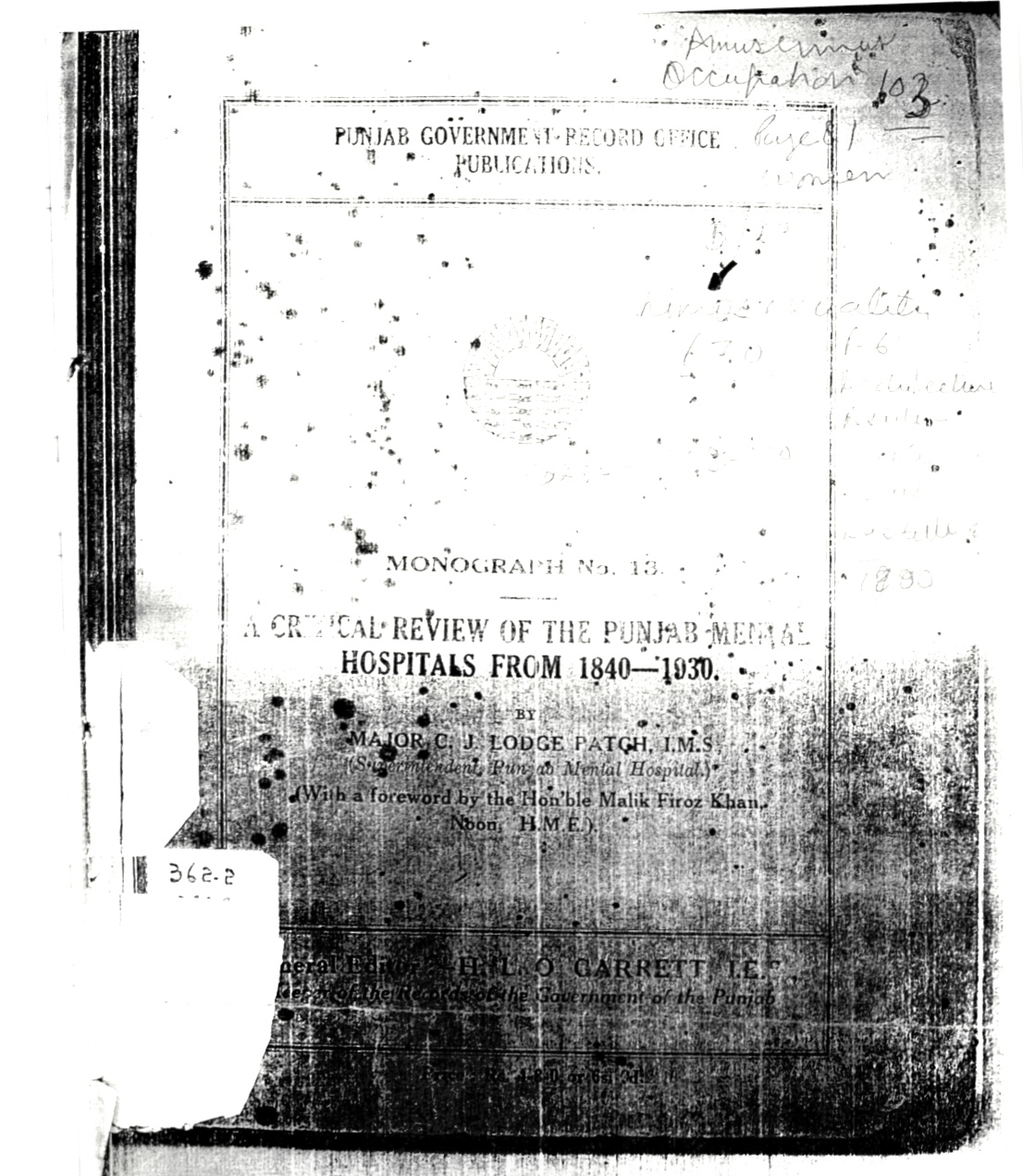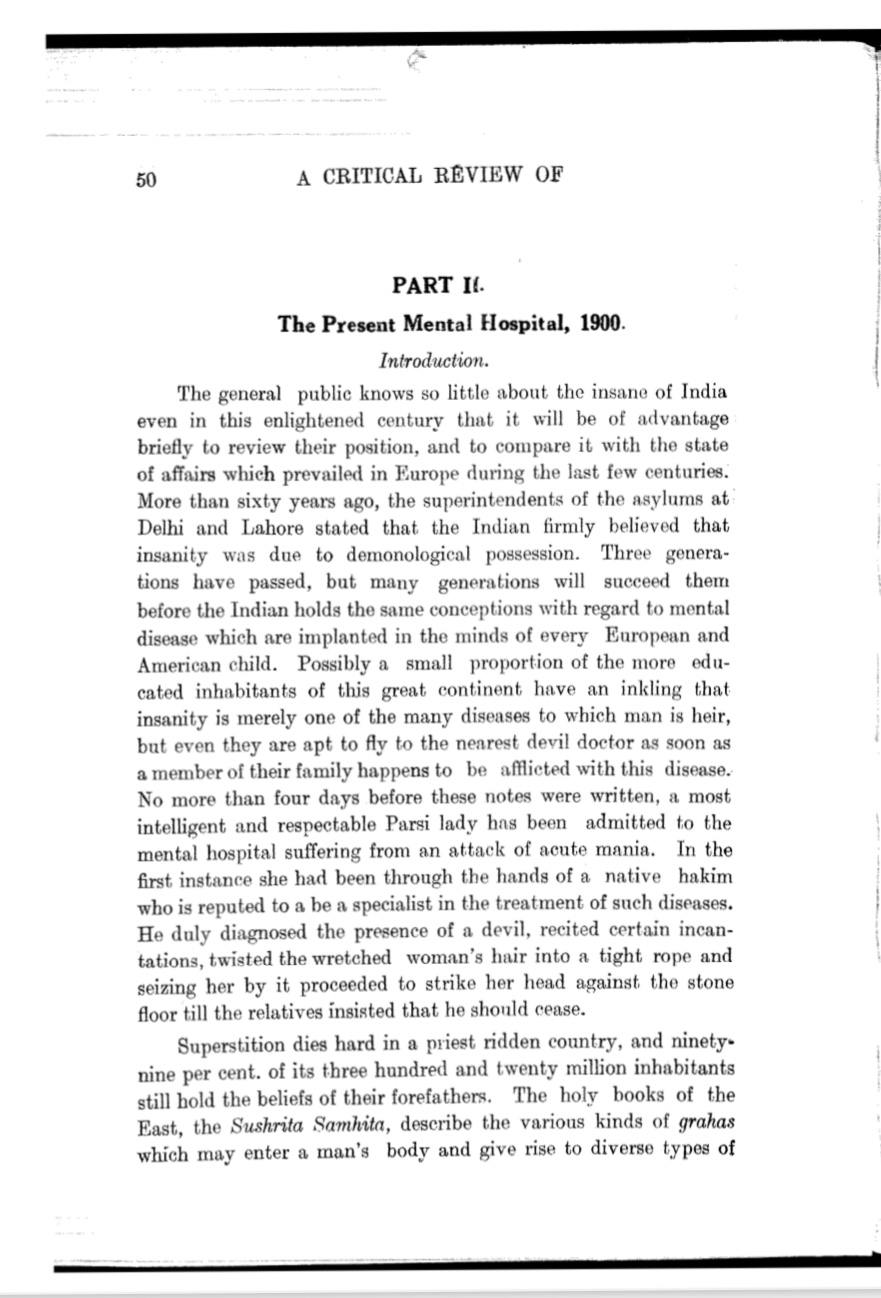Glimpses from the Past
The DECOLMAD blog introduces a new section on archives. In it, we hope to showcase significant archival sources on the history of psychiatry and decolonizing madness. We display here archives from the British India.

The monograph describes working of the Punjab lunatic asylums during the mid-nineteenth and early twentieth centuries. It is based on S.M. Burke Master’s thesis on the history of mental hospitals in the Punjab, which was revised by Charles Lodge Patch, the superintendent of the Lahore Mental Hospital. Burke joined the Indian Civil Services. The book is largely attributed to Lodge Patch who wrote prolifically on issues of mental illness. It discusses the beginning of the Lahore lunatic asylum in a ‘stable’, and its development into the mammoth built-asylum made at the beginning of twentieth century. It also discusses the Delhi lunatic asylum which later was merged into the Lahore asylum. The source throws light on the staff, patients, sanitation, treatment and everyday lives of the inmates in both asylums of the Punjab. Lodge Patch wrote extensively on the state of psychiatry in India. His work provides information about the official mindset as well as prevalent psychiatric practices.

The record is a triumphant interpretation by the British officer. He lauds the British attempts for establishing the modern psychiatric structure but also has a critical view on rather ‘the slow road of progress’. The above account on the present is a damning critique of Indians’ beliefs and practices. These accounts of British superiority and ‘native’ inferiority have a commonplace in colonial records. This reproval of the Indian systems of healing such as Ayurveda and Unani led to further disintegration of Indian healing practices. They were deemed as mere ‘superstition’ and ‘unscientific’. The result of this condemnation was complete dependence on Western psychiatry and a consequent sidelining of the indigenous traditions in colonial and postcolonial India.
